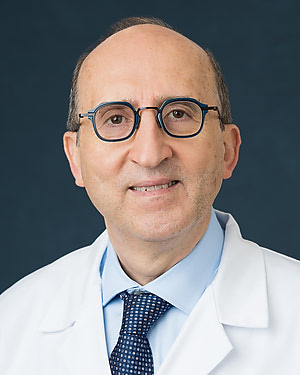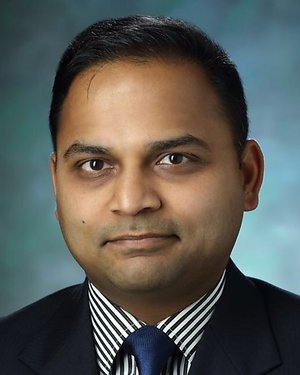Research Lab Results
-
Adrian Dobs Lab
Researchers in the Adrian Dobs Lab study topics that include gonadal dysfunction, hyperlipidemia, diabetes mellitus, and the relationship between sex hormones and heart disease. We currently are investigating male gonadal function—with particular interest in new forms of male hormone replacement therapy—and hormonal changes related to aging.
-
Adult Cardiac Catheterization Laboratory
Our group is interested in the evaluation of basic pathophysiology in patients undergoing cardiac procedures, development and evaluation of new therapeutic strategies, and improving patient selection and outcomes following interventional procedures.
-
Advanced Optics Lab
The Advanced Optics Lab uses innovative optical tools, including laser-based nanotechnologies, to understand cell motility and the regulation of cell shape. We pioneered laser-based nanotechnologies, including optical tweezers, nanotracking, and laser-tracking microrheology. Applications range from physics, pharmaceutical delivery by phagocytosis (cell and tissue engineering), bacterial pathogens important in human disease and cell division. Other projects in the lab are related to microscopy, specifically combining fluorescence and electron microscopy to view images of the subcellular structure around proteins. -
Ahmet Gurakar Lab
The Ahmet Gurakar Lab is interested in bioartificial liver dialysis systems and the application of total plasma exchange in the treatment of liver disorders.
-
AI for Metabolism and Imaging
Our research explores and integrates cutting-edge techniques in body composition analysis, nuclear endocrinology, metabolic and molecular imaging, and innovative machine learning methods.
Principal Investigator
-
Alain Labrique Lab
The Alain Labrique Lab conducts research on infectious diseases and public health. Our team studies the various factors that lead to maternal and neonatal mortality, particularly in underserved populations in South Asia, using the tools of infectious disease epidemiology, molecular biology and biostatistics. We work to better understand factors such as the interface of micronutrient deficiency and maternal/infant mortality and the prevention of nosocomial infections through mechanistic or nutritional interventions. We also have a longstanding interest in technologies that may enable early detection of disease.
Principal Investigator
-
Alan Baer Lab
Research in the Alan Baer Lab focuses on Sjogren's syndrome. Previously, we conducted the Sjogren's International Registry (SICCA), enrolling 300 patients and creating a valuable source of clinical data and biospecimens for research we're conducting with colleagues at Johns Hopkins and the University of California-San Francisco. Currently, we're conducting a longitudinal observational study of patients with Sjogren's syndrome. We're also collaborating with Dr. Ben Larman in the Department of Pathology, using phage immuno-precipation sequencing to work on a characterization of the complete autoantibody repertoire in Sjogren's syndrome patients.
-
Alan Scott Lab
Research in the Alan Scott Lab involves several important areas of genomics. Our team collaborates on a study to investigate the exon and genome sequence variants that determine phenotype, with a specific focus on the genetic bases of cleft lip and palate. We are also involved in assessing and improving genomic technologies to provide next-generation sequencing and analysis of sequence data to the clinical environment. In addition, we have a longstanding interest in the problem of gene annotation and the evolutionary genomics of vertebrates, especially endangered species.
-
Albert Lau Lab
The Lau Lab uses a combination of computational and experimental approaches to study the atomic and molecular details governing the function of protein complexes involved in intercellular communication. We study ionotropic glutamate receptors (iGluRs), which are ligand-gated ion channels that mediate the majority of excitatory synaptic transmission in the central nervous system. iGluRs are important in synaptic plasticity, which underlies learning and memory. Receptor dysfunction has been implicated in a number of neurological disorders. -
Alex Kolodkin Laboratory
Research in the Alex Kolodkin Laboratory is focused on understanding how neuronal connectivity is established during development. Our work investigates the function of extrinsic guidance cues and their receptors on axonal guidance, dendritic morphology and synapse formation and function. We have investigated how neural circuits are formed and maintained through the action of guidance cues that include semaphorin proteins, their classical plexin and neuropilin receptors, and also novel receptors. We employ a cross-phylogenetic approach, using both invertebrate and vertebrate model systems, to understand how guidance cues regulate neuronal pathfinding, morphology and synaptogenesis. We also seek to understand how these signals are transduced to cytosolic effectors. Though broad in scope, our interrogation of the roles played by semaphorin guidance cues provides insight into the regulation of neural circuit assembly and function. Our current work includes a relatively new interest in understanding the origins of laminar organization in the central nervous system.


